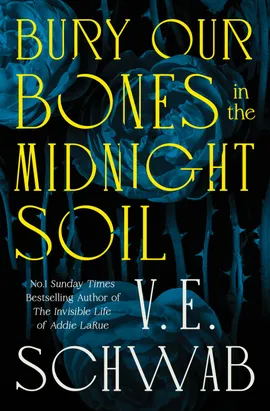More on this book
Community
Kindle Notes & Highlights
“Careful. In nature, beauty is a warning. The pretty ones are often poisonous.”
But María has known, all her life, that she is not meant for common paths, for humble houses and modest men. If she must walk a woman’s road, then it will take her somewhere new.
Nothing fits, even if it’s fitted, because it’s not really about the size of the body or how it fills the clothes, but how much space it takes up in the world.
She wishes she could trade herself for the girl in the glass. This other Alice, who doesn’t care, who takes up space, who has no growing left to do. If not for forever, then at least for tonight.
It’s because there’s a moment, pressed beneath the weighted blanket of the storm, when her body stops fighting, when all the voices inside her finally go quiet, and her shoulders loosen and her lungs unclench and her skin goes numb and the line between girl and world gets smudged, and she is washed away. Made new.
“A name is like a dress. It might be by nature pretty or plain, but it is the person wearing it who matters most.”
“Strange, isn’t it?” she says. “The more you taste, the more you want.”
“One can be alone without feeling lonely,” she muses. “One can feel lonely without being alone.”
“Those grown in the midnight soil are never alone.”
“Bury my bones in the midnight soil,”
“Plant them shallow and water them deep. And in my place will grow a feral rose.” He leans down to Renata and cups her face, running a thumb across her bottom lip. “Soft red petals hiding sharp white teeth.”
“We are the roses that grew in the midnight soil,” he says, eyes bright as candles now. “Our thorns are sharp enough to prick. We are watered by life, and with its bounty, our roots grow deep, our blooms unmarred by age. In fact, for us, time fortifies, renders us more noble. We are no monster, no mean thing. We are nature’s finest flower.”
“There are other names for us, of course,” continues Hector. “Night walker. Blood drinker. Abomination. Vampire. But those are words crafted by mortal tongues. They are imperfect, incomplete. They lack the poetry, the brutality, the grace. No,” he says. “We are roses.”
“A good first lesson, dear Sabine,” says Hector, unfurling a sail. “You should always be found ahead of your corpses, and never in their wake.”
“You may be her plaything. But I am her god.”
After all, what grows in the midnight soil is not a different flower, only a bolder bloom. He is by nature passionate, and reckless.
“Bury my bones in the midnight soil, plant them shallow but water them deep, and in my place will grow a feral rose, soft red petals hiding sharp white teeth.”
“The world will try to make you small. It will tell you to be modest, and meek. But the world is wrong. You should get to feel and love and live as boldly as you want.”
Why does Charlotte stay? That is like asking—why stay inside a house on fire? Easy to say when you are standing on the street, a safe distance from the flames. Harder when you are still inside, convinced you can douse the blaze before it spreads, or rushing room to room, trying to save what you love before it burns.
“The fact is, whether death takes you all at once, or steals pieces over time, in the end there is no such thing as immortality. Some of us just die slower than the rest.”


